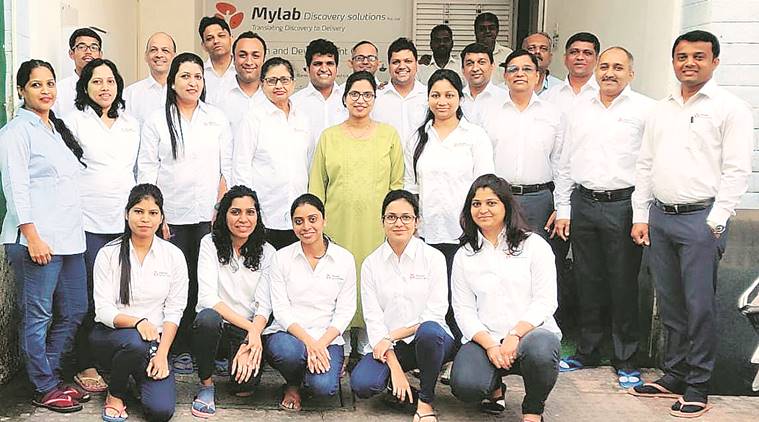Pune-based molecular diagnostic startup Mylab has received approval from the regulatory body to sell its kits to labs testing samples for COVID-19.
Pune-based molecular diagnostic startup Mylab has received approval from the regulatory body to sell its kits to labs testing samples for COVID-19. The firm’s managing director, Hasmukh Rawal, spoke to Kaunain Sheriff about the cost and scale of production of the kits, and how the company received the approval.
What is the estimated number of kits that you will be able to deliver in the Indian market?
I want to state that government support has been absolutely commendable, which has fast-tracked the process so that we can start serving the country… We are starting the production batch. In the next two days, we will be ready for 10,000-15,000 test samples per day… We have received orders from private diagnostic labs, and we will fully support them.
What will be the cost of a kit? Will the kit be cheaper than those being imported into India?
The kits have to be available to the masses. So, if the government currently purchases (kits) for Rs 4,500, our product will be one-fourth the price… We will make the kits affordable.
The ICMR conducted a validation test for nine companies. However, only the German-based Altona Diagnostics and your company could achieve 100 per cent results. Why is that only one Indian company could get validation?
We work only in the field of molecular diagnostics platform, and our focus has been HIV, HCV, chikungunya, dengue, etc. Specifically in the case of a pandemic like COVID-19, it is very important to bring a high-end test to the masses because you cannot wait for the person to (test) positive… Also, you don’t want to risk a patient with a false positive or false negative, and the delay can lead to high mortality rates.
Therefore, efficient tests for such viral infections can be achieved only through molecular diagnostics. Since, we have all the required things in place — the research and development, production, quality control, sourcing — that is why we got validation in record time.
When did you begin developing kits for COVID-19?
We began working on the kit two months back. All the SoPs were in place and there was a lot of work involved. As a policy, we don’t launch any product till the time our quality control team approves it. There are very stringent criteria. We released the batch (of kits) to National Institute of Virology (NIV), Pune for evaluation only when we were very sure that it will pass all the tests. And you can see that even though a multinational like Altona started a little early, we received the validation at the same time. This proves that Indian companies are on par with other global companies.
What was the process of evaluation at NIV?
Keeping in mind the spread of the pandemic, the guidelines are very stringent. You cannot even risk any cross-reactivity — one has to be very careful about false positivity or false negativity while conducting the test… The kit has to give the result with 100 per cent accuracy. As far as I know, during the evaluation, the authorities also checked the sensitivity — that is, the lowest quantity of virus the kit can pick. Kits with such sensitivity can also track the virus in asymptomatic patients.
Since there are other viruses of the same family, and which look alike, the evaluation also looked into activity with other similar viruses. This is to ensure that the kit does choose other similar viruses as the one causing COVID-19. And we received 100 per cent test results on all these parameters.
Before seeking validation for commercial kits, did you give your kits for ‘research use only’ to NIV?
We wanted to but we didn’t. ICMR said that non-US Food and Drug Administration or non-European CE (firms) need to send their kits only to NIV, Pune for validation. However, we also sent our kits to Kasturba Gandhi Hospital (in Mumbai) for evaluation. These kits are called ‘testing purpose kits’. So in that sense, we did send our test kits to Kasturba Gandhi Hospital. So technically, the kits received validation from NIV as well as from Kasturba.
What were the other approvals you received before you got validation from the NIV?
First, we needed a testing license in place. You cannot manufacture the batch (of kits) unless you have a license from the Central Drugs Standard Control Organization. After that, we developed the product and sent it for validation. The companies also need to have production capacity. The production is done on the basis of FDA guidelines. The CDSCO inspects the production site, and only then we can begin the production.
Here’s a quick Coronavirus guide from Express Explained to keep you updated: Are smokers at high risk form coronavirus? | Can Vitamin-C prevent or cure coronavirus infection? | What exactly is community spread of coronavirus? | How long can the Covid-19 virus survive on a surface? | Amid the lockdown, what is allowed, what is prohibited?
? The Indian Express is now on Telegram. Click here to join our channel (@indianexpress) and stay updated with the latest headlines
For all the latest India News, download Indian Express App.
Source: Read Full Article





